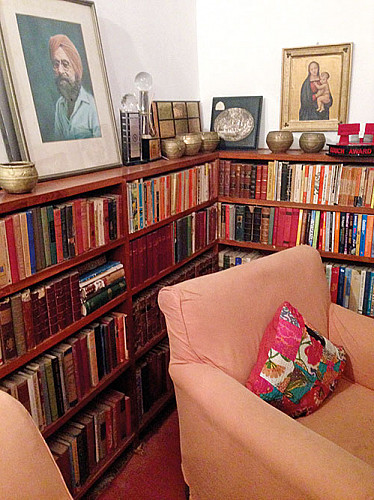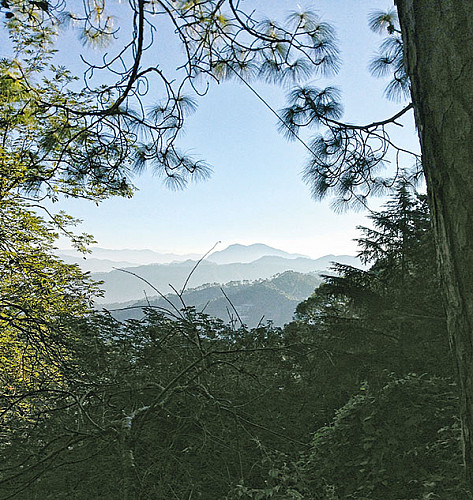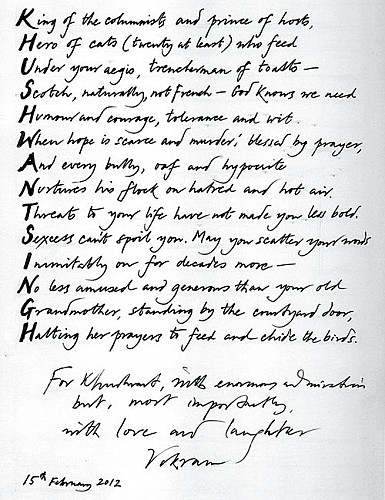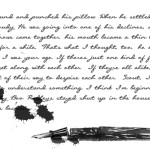Tales From The Khushwant Singh Literary Festival
It is quite possibly the quirkiest as well as the toniest of literary events in India. The tiniest too, going by the fact that Kasauli, a 650-acre cantonment town in the Shivaliks has just 950 homes and a population of merely 5,000. At this festival, fiction plays second fiddle to non-fiction — perhaps because truth has become stranger than fiction, oozing many more possibilities. Or because the vision for the fest is circumscribed by late author Khushwant Singh’s own eclectic passions and interests — Urdu poetry, Sikh philosophy, politics, history of the armed forces, and world affairs. Run by son Rahul Singh and Niloufer Billimoria, the festival plays out over three days at the Kasauli Club, with strict rules of membership and a prescribed dress code that sets its classic sartorial tone.
It is therefore with a delicious sense of irony (one that Khushwant Singh would have approved of) that I watch Kanhaiya Kumar, student leader and activist with left leanings, hold forth on the fallacy of nationhood and the search for an inclusive national identity, amidst the pashminas, phulkaris and blazers. Another barrier-breaking moment is when wheelchair-bound Bant Singh greets the crowd with a cheery laal salaam. His story, retold by journalist Nirupama Dutta in The Ballad of Bant Singh: A Qissa of Courage, is well known: his daughter was gang-raped by upper-caste men and his taking on on the legal case resulted in their imprisonment. In an act of retributive justice, he was beaten with iron rods and lost his arms and one leg. He continues to sing Dalit protest songs. This is where the theme of the literary affair, ‘Breaking Barriers’, comes alive for me — inclusion, debate and the bringing together of different worlds to question existing truths.

There is also a strong emphasis on military history and writing. The organisers acknowledge this skew by labelling the session ‘Kargil — Turning the Tide’ as a platform for military literature. It features Lieutenant General Ata Hassnain and Lieutenant General KJ Singh in conversation with Lieutenant General Mohinder Puri, acknowledged as the hero of Kargil and author of the book by the same name.
Shiv Kunal Verma’s 1962 — The War That Wasn’t on the Indo-Chinese war makes for spirited discussion and analysis with commentator and editor of Salute magazine Maroof Raza. Venkat Dhulipala discusses his brilliantly-researched book, Creating a New Medina: State Power, Islam, and the Quest for Pakistan in Late Colonial North India with Salman Khurshid. Touted as the most important work of historic non-fiction in 2015 by a leading publication, this one is on my must-buy list. Montek Singh Ahluwalia’s clear and succinct lecture on 25 years of liberalisation is balanced the next day by three scholars — Badri Narayan, Y. S. Alone and Dr Anand Teltumbde — on 125 years of Ambedkar. Arundhathi Subramaniam’s recitation of poems from her book The God Less Travelled in a session with Malavika Sangghvi shifts the focus from the non-fiction overload. Another author who broke barriers is Sylvia Dyer who wrote her debut novel at the age of 83: The Spell Of Flying Foxes, a memoir of growing up in Champaran in the 1930s. She is now doing the festival circuit at 88. Stephen Alter, in his signature dramatic style, presents a fictionalised account of Jim Corbett’s life from his new book Into The Jungles of the Night. Suhel Seth, associated with Khushwant Singh and the book From Kalighat to Calcutta, has the audience in splits of laughter with his unique take on Me, The Joker Man, a new collection of over 50 of Singh’s essays.

Part of this festival’s appeal comes from the elegant soirees and dinners at heritage homes and historic estates with local hosts fiercely proud of their town and committed to saving it from ecological disaster.
At the beautifully-maintained hundred-year-old Denisford Estate, we peer at gorgeous Tanjores, antique carpet-strewn wooden floors, and warm ourselves by the fireplace, enjoying the elegant underplayed hospitality of Jags and Neelam Luthra. A steep upward walk leads us to Sheila and Bunty Pasricha’s home in the sky. Over Bloody Marys on a sun-strewn, red-roofed verandah that surrounds the house, we are treated to a spectacular 360-degree view of terraced gardens with azaleas, dahlias and the last of summer blooms, the valley below and the mountains beyond.

The last night ticks off all the boxes for me. A dark path by the light of the hunter’s moon takes me to the late Sikh writer’s home, Raj Villa, for a dinner hosted by Rahul. The temperature obligingly drops to eight degrees as I reach the quaint cottage filled with books, art, family photographs, faded sofas and overstuffed armchairs in cosy corners with fireplaces. A writers’ retreat in every sense.
Related posts from Verve:
Verve Trending
Sorry. No data so far.
us on Facebook to stay updated with the latest trends






